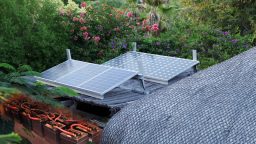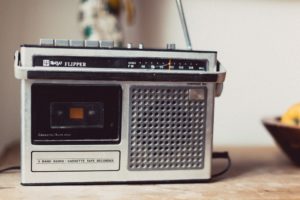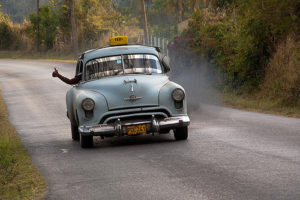You want to live off the grid, but that doesn’t mean you don’t need electrical power to operate your lights and appliances.
You can use a generator, but generators require gasoline. A generator is a good backup solution for people who are on the grid when they lose power.
However, if you want to be independent, the best way to do it is to invest in solar energy options for your home and property. It used to be that solar panels were prohibitively expensive. That’s no longer the case.
In this post, we’ll detail some of the solar energy options for homesteaders. By the time you’ve finished reading, you’ll have the information you need to make the switch to solar power.
On Grid vs. Off Grid
The first thing you need to decide is whether you want to live off the grid or on the grid. For some homesteaders, making a switch to solar power is best done incrementally.
In other words, you might start with a few solar panels and switch to solar for heating your water. Then, over time, you may add additional panels to help you ease into off-grid living.
If your goal is to get off the grid as soon as possible, you’ll need to evaluate your energy needs and determine how much power you need to collect and store to keep things running the way you want them to.
Calculating Your Power Needs
The next step is to determine your power needs. There are many easy online calculators that you can use. Here’s what you’ll need to make the calculation:
- The number of Kilowatt-Hours (kWh) you use per month
- The percentage of your energy use you want to offset with solar power
- The state you live in (determines the average days of sun where you live)
The calculator uses these three things to calculate a minimum and maximum size for your new solar power system.
[Must See] Solar Panels Alternative — Portable Solar Energy System: Learn More Here>>>
Solar Power Options
Regardless of your power needs, you need a system to collect solar energy, convert it to the proper form, and store it so you can use it to power your home.
If your goal is to be only partially dependent on the grid, then you have a few options to choose from. For example, you might:
- Invest in a solar water heater. You’ll need to place it in an area that gets as much direct sunlight as possible, but you won’t need to add solar panels to your home.
- If you have a swimming pool, get a solar pool heater. The same principle applies – you’ll need to place it in direct sunlight for the best results.
- You can buy and install just a few solar panels, store the energy in batteries, and use it as needed.
Related Article: “4 Excellent Ways to Generate Your Own Electricity”
The other option, of course, is to make the switch and move off the grid. In that case, you’ll need to purchase:
- Photovoltaic (PV) panels to collect sufficient power for your needs
- A combiner box where you’ll plug in the panels
- A charge controller to prevent your panels from storing too much energy
- Solar batteries to store excess energy
- A DC to AC inverter to make the power you collect usable
Of course, the expense of buying these things can add up. If you’re an experienced electrician (or you know one who’s willing to work for cheap) then you don’t have to buy a combiner box – you can make one. Keep in mind that it’s important to get the wiring right and to protect your system so it doesn’t fail.
Making the Switch to Solar
Switching to solar power can help you save money in the long term. We like it because it gives us a reliable source of power that we can count on even if the grid fails or is compromised.
Have you made the switch to solar power? Tell us in the comments!




 Look at Cuba-cut off from Western car manufacturers since the 60s, Cuban citizens have kept their old classic American-made cars running with little more than basic tools and salvaged car parts. If you don’t want to be tethered to the unreliable technology of today, it might be worth investing in an older analog car for your homestead.
Look at Cuba-cut off from Western car manufacturers since the 60s, Cuban citizens have kept their old classic American-made cars running with little more than basic tools and salvaged car parts. If you don’t want to be tethered to the unreliable technology of today, it might be worth investing in an older analog car for your homestead.